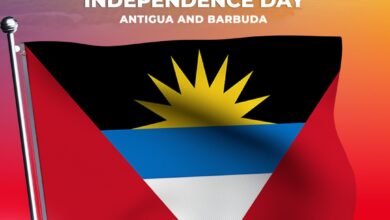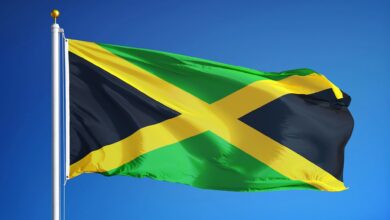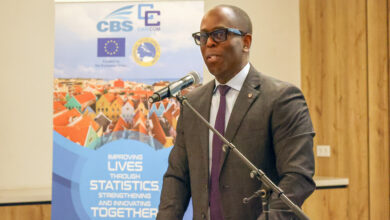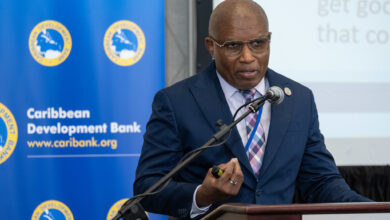(CARICOM Secretariat, Turkeyen, Greater Georgetown, Guyana) It is a privilege to bring greetings on behalf of the Pan Caribbean Partnership Against HIV and AIDS at CBMP’s 5th Anniversary Media Leaders Summit. Since its inception 2001, PANCAP has been seeking to work with partners such as yourselves in the media to galvanize the regional response to the HIV epidemic.
I begin by saluting CBMP for its 5 years of sterling achievements and you its media leaders for your ongoing commitment to mitigating the impact of the HIV epidemic. As I understand it, you gather annually to reflect on your efforts and to recharge and recommit for the upcoming year. That you do so on this World AIDS Day 2011 which has been appropriately themed “Getting to Zero: Zero New Infections, Zero Discrimination, Zero AIDS-related deaths – it is imperative that share with you the important mandate that has been placed upon your capable shoulders at this juncture in our regions response.
In 2010 at PANCAP’s 10th AGM in St. Maarten, the Caribbean region set itself achievable targets to be met by 2015 which are designed to help us to get to Zero. We said resoundly on that occasion that we will be the first region to eliminate the mother to child transmission of HIV. This is indeed achievable and we will do it. We said that by 2015 we will increase access to treatment by 80% and reduce new infections by 50% and we are working towards these goals. We also said that we will accelerate the agenda to achieve human rights and ensure that there are no travel commitments to impede persons living with HIV from moving seamlessly across the region. Travel restrictions will soon be a thing of the past but we struggle with the achievements of human rights for all segments of our populations such as sexual minorities. These targets we have set are clear, achievable and offer countries and organizations such as CBMP and its member stations a mandate that should be used to mobilize efforts. These targets require all of us, if we have not done so already, to assess where we are as a bench mark and work assiduously towards 2015.
For PANCAP, the media and its leaders are therefore not an after thought but vital to eliminating the epidemic. Your business meeting agenda showcases several of PANCAP’s flagship initiatives such as the CARISMA project, Regional Stigma and Discrimination Unit (RSDU), the Global Fund work of Caribbean Vulnerable Communities Coalition (CVC), COIN and the interventions of other partners such as UNESCO and UN Women. This is in recognition of the various ways in which the media can help to meet regional targets. First, by increasing your awareness of the issues surrounding increasing access to treatment and reducing new infections particularly among marginalized and vulnerable communities you are poised to use the various means at your disposal to raise awareness and seek to encourage accountability on the part PANCAP and its constituent governments and organizations.
Secondly, the media can seek to share some of the responsibility for promoting access by holding yourselves accountable to the highest professional standards calling out media service providers whose efforts to sensationalize set back our regional efforts and promoting those who fearlessly drive the agenda forward.
Thirdly in your messaging seek to employ social marketing and other evidence driven approaches. We all know bad messages that make us cringe when we see or hear them and we all know the messages that raise the hair on the back of our hand or cause us to pause and reflect. We must challenge providers of public service messages or paid advertisers on the content and evidence basis of their messages and avoid as far as possible have your airwave flooded with ineffectual and weak messages.
Finally, this disease belongs to all of us (not some more than others) and it is shaped by our sexual AND social behaviours with media playing a role in shaping the norms in both areas. Indeed there is shared responsibility for shaping our cultural norms between the media church and family with endless debates on whose influence is most pervasive. In my view, media should not just reflect social values but to evaluate them– not just observe what is happening but should seek to intervene AND provide leadership in face of injustice. I know my remarks in this regard fall on fertile ground – by your presence here today. Many of you have already made a difference and I thank you for the work you have done and encourage you to do more in a much more targeted way.
Ladies and Gentlemen, as we look around the world, media and communications, are the new weapons of change and the new armaments of revolution. I call on Caribbean media leaders to harness this power for the benefit of Getting us to zero with our HIV epidemic. We have targets and you have the armoury. CBMP continues to provide that necessary strategic leadership and coordination. National AIDS programmes and Ministries of health along with civil society partners stand with your efforts and should be allies in your efforts. I am confident that together and in partnership we can reach our goals and targets. Together and in Partnership we can set about getting to zero.
Thank you and my best wishes on your deliberations.





